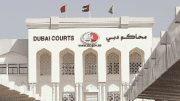- More by Michael Al-Said
Sara Baras brought her show ‘Sombras’ to the United Arab Emirates, to celebrate the twentieth
anniversary of the founding of her company
| BREAKING NEWS
Al-Sahawat Times |
This story is currently developing. Further updates will follow To be notified of developments as they break |
|---|
Al-Sahawat Times | Ethical Global News from Oman and UAE | Donate HERE
Advertisement – Advertise here from OMR 100 / $275 USD
UAE | Abu Dhabi
The performance was part of the Abu Dhabi Festival.
Sara Baras’ tour ‘Sombras’, which translates to ‘shadows’, is her thirteenth, which she has presented and Choreographed herself.
“The shadow, in this case, is the silhouette of a dancer,” Baras explained.
“The shadow that you have always carried behind you is an important reminder to not forget the things that have guided you there; so when you’re lacking in strength, your shadow will help you carry on,” she added.
In 1998 Baras formed her own ballet, ‘Flamenco Ballet Sara Baras’, which has been performed over 4,000 times around the world.
Sara Baras’ company also hosted a flamenco workshop.
The flamenco star is renowned to challenge gender stereotypes.
The main theme of her show ‘Sombras’ is the ‘Farruca’, a dance of strength, which is traditionally
performed by men and is characterised by its elegance and simplicity.
“When I first danced the Farruca, 20 years ago it had a profound impact on me, so with Sombras,
I wanted to remember and showcase that taking risks can make you grow beyond your
expectations,” said Baras.
HOW HAS ARAB CULTURE INFLUENCED FLAMENCO?
Designated a UNESCO World Intangible Cultural Heritage in 2010, Flamenco is known to be a
dance of feeling and expression made famous by artists like Carmen Amya , Paco de Lucia and
Cameron de Isla, to name a few.
The dance and music style was forged by the ancient Andalusian gypsies (Al-Andaluzi Gitanos), bringing together
dancers, percussionists, guitarists, and singers to evoke their sorrow and joy.
While the exact roots of the Spanish tradition are lost to history, it’s believed that there are some strong Arab influences.
During the Middle Ages, when the Arab Kingdom of Al-Andaluz, part of the Islamic Empire was being pushed to decline by Christian European crusaders pushing into North Africa and the Middle-East, an artistic fusion was formed on the side-lines of the conflict.
The ancient Arabian ‘Mawaal’, a sung poetry, have strongly shaped flamenco songs.
While the ‘jaleo’, the beat of the rapid handclapping is said to emulate the folk melodies and dances of the Middle East. Not to mention the use of Arab instruments such as the Darbuka and Oud.
“Flamenco is an art that has drunk from other cultures and the Arab culture is of course present,” said Baras.
The Mediterranean (Middle-Ground in Latin) has been the melting pot for thousands of years between the Latin, European, Balkan, African and Asian worlds. Gypsies, Nomads, Arabs, Latinos and many more have helped to shape the Flamenco into the emotive masterpieces they are today.
Since you’re here …
… we have a small favour to ask. More people are reading Al-Sahawat Times than ever but advertising revenues across the global media industry are falling fast. And unlike many news organisations, we haven’t put up a total paywall. We want to keep our journalism as open as we can. So you can see why we need to ask for your help. Al-Sahawat Times’ independent, investigative journalism takes a lot of time, money and hard work to produce. But we do it because we believe truly ethical media and an unbias perspective really matters.
“I appreciate there not being a paywall: it is more democratic for the media to be available for all and not a commodity to be purchased by a few. I’m happy to make a contribution so others with less means still have access to information.”
If everyone who reads our reporting, who likes it, helps fund it, the future of ethical media and the futures of our staff and their families would be much more secure. For as little as £1, you can support Al-Sahawat Times and it only takes a minute. Thank you.
This story is available on:
APPLE NEWS | GOOGLE NEWS | AL-SAHAWAT TIMES
Talk to a journalist
Email: NewsDesk@alsahawat.com
Web: alsahawat.com
Follow Al-Sahawat Times
?Read it on FLIPBOARD
Views: 0







